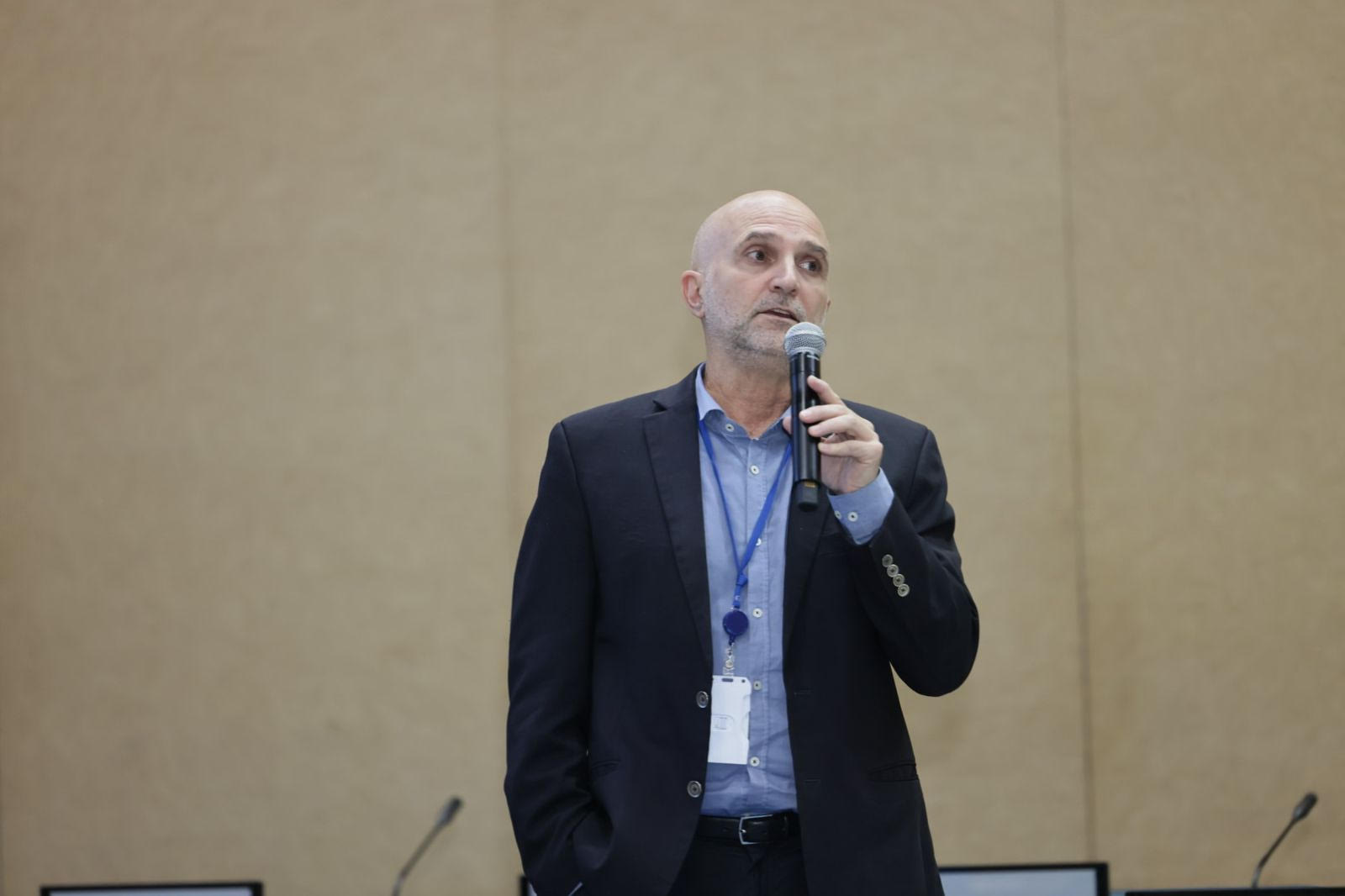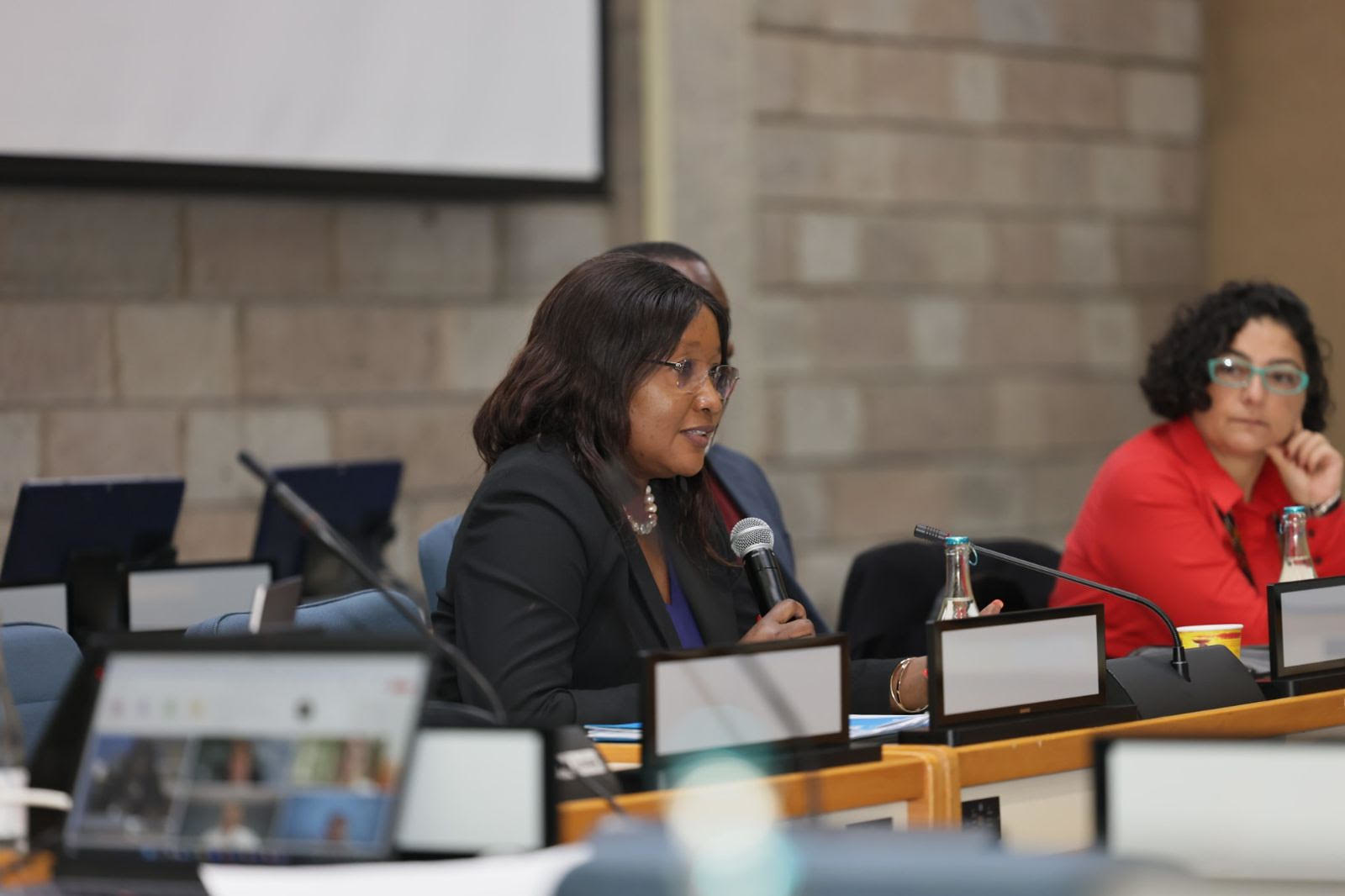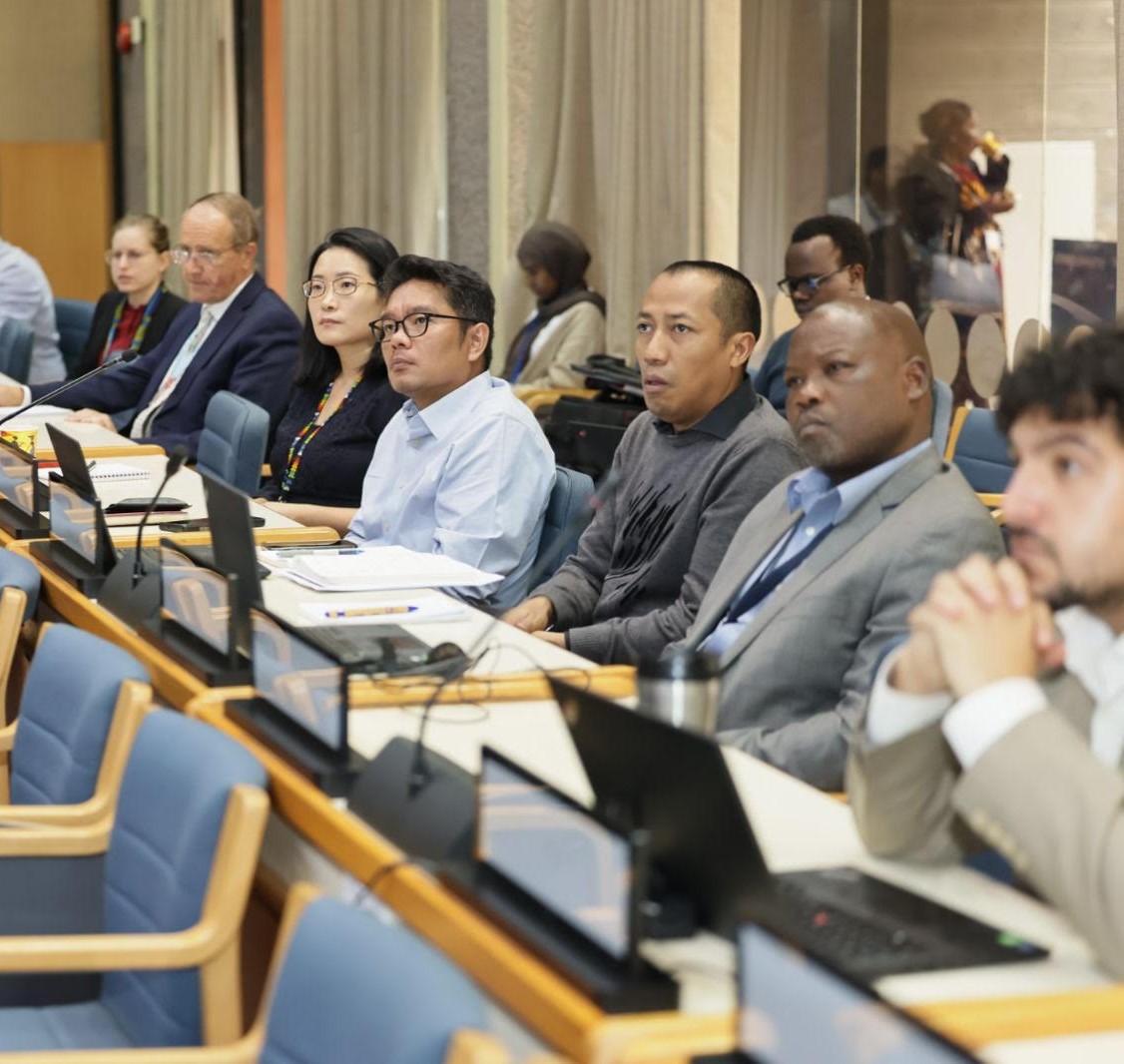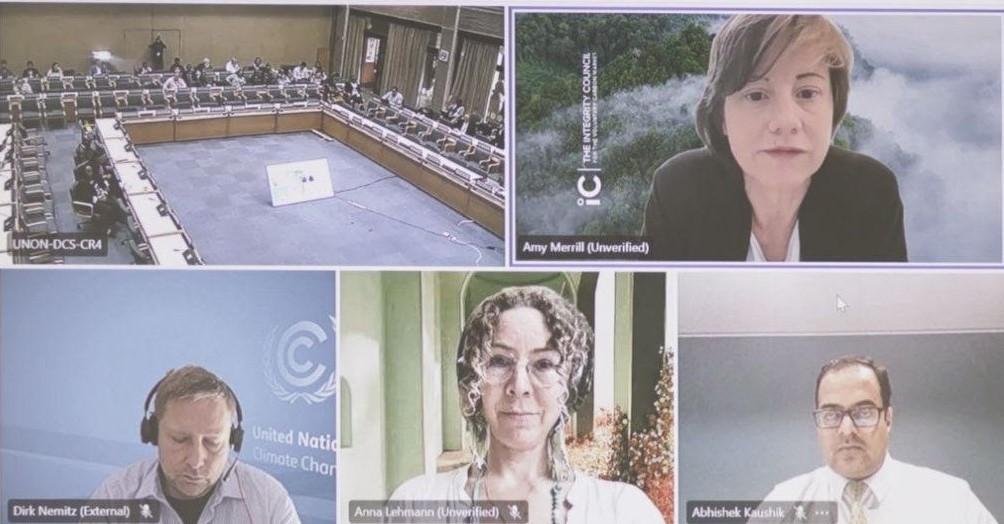- Warning: Undefined array key "sources" in lazy_preprocess_responsive_image() (line 264 of modules/contrib/lazy/lazy.module).
lazy_preprocess_responsive_image(Array, 'responsive_image', Array)
call_user_func_array('lazy_preprocess_responsive_image', Array) (Line: 285)
Drupal\Core\Theme\ThemeManager->render('responsive_image', Array) (Line: 445)
Drupal\Core\Render\Renderer->doRender(Array, ) (Line: 204)
Drupal\Core\Render\Renderer->render(Array) (Line: 474)
Drupal\Core\Template\TwigExtension->escapeFilter(Object, Array, 'html', NULL, 1) (Line: 50)
__TwigTemplate_d2e61522b30e68724cfc229e51058e3d->doDisplay(Array, Array) (Line: 394)
Twig\Template->displayWithErrorHandling(Array, Array) (Line: 367)
Twig\Template->display(Array) (Line: 379)
Twig\Template->render(Array, Array) (Line: 40)
Twig\TemplateWrapper->render(Array) (Line: 53)
twig_render_template('core/modules/responsive_image/templates/responsive-image-formatter.html.twig', Array) (Line: 372)
Drupal\Core\Theme\ThemeManager->render('responsive_image_formatter', Array) (Line: 445)
Drupal\Core\Render\Renderer->doRender(Array, ) (Line: 204)
Drupal\Core\Render\Renderer->render(Array) (Line: 474)
Drupal\Core\Template\TwigExtension->escapeFilter(Object, Array, 'html', NULL, 1) (Line: 44)
__TwigTemplate_33fe4565f1c2c00749cdd58af6bfea88->doDisplay(Array, Array) (Line: 394)
Twig\Template->displayWithErrorHandling(Array, Array) (Line: 367)
Twig\Template->display(Array) (Line: 379)
Twig\Template->render(Array, Array) (Line: 40)
Twig\TemplateWrapper->render(Array) (Line: 53)
twig_render_template('themes/custom/unredd/templates/storytelling/story-cover/field--media--field-media-image--image.html.twig', Array) (Line: 372)
Drupal\Core\Theme\ThemeManager->render('field', Array) (Line: 445)
Drupal\Core\Render\Renderer->doRender(Array) (Line: 458)
Drupal\Core\Render\Renderer->doRender(Array, ) (Line: 204)
Drupal\Core\Render\Renderer->render(Array) (Line: 474)
Drupal\Core\Template\TwigExtension->escapeFilter(Object, Array, 'html', NULL, 1) (Line: 56)
__TwigTemplate_619f8bc0bcff72e6b22821c9f572c32c->doDisplay(Array, Array) (Line: 394)
Twig\Template->displayWithErrorHandling(Array, Array) (Line: 367)
Twig\Template->display(Array) (Line: 379)
Twig\Template->render(Array, Array) (Line: 40)
Twig\TemplateWrapper->render(Array) (Line: 53)
twig_render_template('themes/contrib/radix/templates/content/media.html.twig', Array) (Line: 372)
Drupal\Core\Theme\ThemeManager->render('media', Array) (Line: 445)
Drupal\Core\Render\Renderer->doRender(Array, ) (Line: 204)
Drupal\Core\Render\Renderer->render(Array) (Line: 474)
Drupal\Core\Template\TwigExtension->escapeFilter(Object, Array, 'html', NULL, 1) (Line: 86)
__TwigTemplate_0f7a1a99a1e35c9a1dc5bea18fe634c1->doDisplay(Array, Array) (Line: 394)
Twig\Template->displayWithErrorHandling(Array, Array) (Line: 367)
Twig\Template->display(Array) (Line: 379)
Twig\Template->render(Array, Array) (Line: 40)
Twig\TemplateWrapper->render(Array) (Line: 53)
twig_render_template('themes/contrib/radix/templates/field/field.html.twig', Array) (Line: 372)
Drupal\Core\Theme\ThemeManager->render('field', Array) (Line: 445)
Drupal\Core\Render\Renderer->doRender(Array, ) (Line: 204)
Drupal\Core\Render\Renderer->render(Array) (Line: 474)
Drupal\Core\Template\TwigExtension->escapeFilter(Object, Array, 'html', NULL, 1) (Line: 51)
__TwigTemplate_097c62400887353a92fed2013da6a74e->doDisplay(Array, Array) (Line: 394)
Twig\Template->displayWithErrorHandling(Array, Array) (Line: 367)
Twig\Template->display(Array) (Line: 379)
Twig\Template->render(Array, Array) (Line: 40)
Twig\TemplateWrapper->render(Array) (Line: 53)
twig_render_template('themes/custom/unredd/src/patterns/card_article_vertical/pattern-card_article_vertical.html.twig', Array) (Line: 372)
Drupal\Core\Theme\ThemeManager->render('pattern_card_article_vertical', Array) (Line: 445)
Drupal\Core\Render\Renderer->doRender(Array, ) (Line: 204)
Drupal\Core\Render\Renderer->render(Array) (Line: 474)
Drupal\Core\Template\TwigExtension->escapeFilter(Object, Array, 'html', NULL, 1) (Line: 50)
__TwigTemplate_177cdf2eb23d1c34e3763f9993a0406a->doDisplay(Array, Array) (Line: 394)
Twig\Template->displayWithErrorHandling(Array, Array) (Line: 367)
Twig\Template->display(Array) (Line: 379)
Twig\Template->render(Array, Array) (Line: 40)
Twig\TemplateWrapper->render(Array) (Line: 53)
twig_render_template('themes/custom/unredd/templates/content/article/node--article--card-vertical.html.twig', Array) (Line: 372)
Drupal\Core\Theme\ThemeManager->render('node', Array) (Line: 445)
Drupal\Core\Render\Renderer->doRender(Array, ) (Line: 204)
Drupal\Core\Render\Renderer->render(Array) (Line: 474)
Drupal\Core\Template\TwigExtension->escapeFilter(Object, Array, 'html', NULL, 1) (Line: 66)
__TwigTemplate_e6e48653dab4d8678ce6762116c46d4e->doDisplay(Array, Array) (Line: 394)
Twig\Template->displayWithErrorHandling(Array, Array) (Line: 367)
Twig\Template->display(Array) (Line: 379)
Twig\Template->render(Array, Array) (Line: 40)
Twig\TemplateWrapper->render(Array) (Line: 53)
twig_render_template('modules/contrib/views_bootstrap/templates/views-bootstrap-grid.html.twig', Array) (Line: 372)
Drupal\Core\Theme\ThemeManager->render('views_bootstrap_grid', Array) (Line: 445)
Drupal\Core\Render\Renderer->doRender(Array) (Line: 458)
Drupal\Core\Render\Renderer->doRender(Array, ) (Line: 204)
Drupal\Core\Render\Renderer->render(Array) (Line: 474)
Drupal\Core\Template\TwigExtension->escapeFilter(Object, Array, 'html', NULL, 1) (Line: 85)
__TwigTemplate_f469484f590ab2bdbc23e1da65a4a86c->doDisplay(Array, Array) (Line: 394)
Twig\Template->displayWithErrorHandling(Array, Array) (Line: 367)
Twig\Template->display(Array) (Line: 379)
Twig\Template->render(Array, Array) (Line: 40)
Twig\TemplateWrapper->render(Array) (Line: 53)
twig_render_template('core/modules/views/templates/views-view.html.twig', Array) (Line: 372)
Drupal\Core\Theme\ThemeManager->render('views_view', Array) (Line: 445)
Drupal\Core\Render\Renderer->doRender(Array) (Line: 458)
Drupal\Core\Render\Renderer->doRender(Array, ) (Line: 204)
Drupal\Core\Render\Renderer->render(Array) (Line: 474)
Drupal\Core\Template\TwigExtension->escapeFilter(Object, Array, 'html', NULL, 1) (Line: 147)
__TwigTemplate_b4f991b620acdadf22edb4c832fb7cf7->block_content(Array, Array) (Line: 171)
Twig\Template->displayBlock('content', Array, Array) (Line: 61)
__TwigTemplate_e3dbd5407a6188c3dab429b368068d79->doDisplay(Array, Array) (Line: 394)
Twig\Template->displayWithErrorHandling(Array, Array) (Line: 367)
Twig\Template->display(Array, Array) (Line: 44)
__TwigTemplate_b4f991b620acdadf22edb4c832fb7cf7->doDisplay(Array, Array) (Line: 394)
Twig\Template->displayWithErrorHandling(Array, Array) (Line: 367)
Twig\Template->display(Array) (Line: 379)
Twig\Template->render(Array, Array) (Line: 40)
Twig\TemplateWrapper->render(Array) (Line: 53)
twig_render_template('themes/custom/unredd/templates/content/article/node--article--full.html.twig', Array) (Line: 372)
Drupal\Core\Theme\ThemeManager->render('node', Array) (Line: 445)
Drupal\Core\Render\Renderer->doRender(Array, ) (Line: 204)
Drupal\Core\Render\Renderer->render(Array, ) (Line: 238)
Drupal\Core\Render\MainContent\HtmlRenderer->Drupal\Core\Render\MainContent\{closure}() (Line: 592)
Drupal\Core\Render\Renderer->executeInRenderContext(Object, Object) (Line: 239)
Drupal\Core\Render\MainContent\HtmlRenderer->prepare(Array, Object, Object) (Line: 128)
Drupal\Core\Render\MainContent\HtmlRenderer->renderResponse(Array, Object, Object) (Line: 90)
Drupal\Core\EventSubscriber\MainContentViewSubscriber->onViewRenderArray(Object, 'kernel.view', Object)
call_user_func(Array, Object, 'kernel.view', Object) (Line: 111)
Drupal\Component\EventDispatcher\ContainerAwareEventDispatcher->dispatch(Object, 'kernel.view') (Line: 186)
Symfony\Component\HttpKernel\HttpKernel->handleRaw(Object, 1) (Line: 76)
Symfony\Component\HttpKernel\HttpKernel->handle(Object, 1, 1) (Line: 58)
Drupal\Core\StackMiddleware\Session->handle(Object, 1, 1) (Line: 48)
Drupal\Core\StackMiddleware\KernelPreHandle->handle(Object, 1, 1) (Line: 191)
Drupal\page_cache\StackMiddleware\PageCache->fetch(Object, 1, 1) (Line: 128)
Drupal\page_cache\StackMiddleware\PageCache->lookup(Object, 1, 1) (Line: 82)
Drupal\page_cache\StackMiddleware\PageCache->handle(Object, 1, 1) (Line: 48)
Drupal\Core\StackMiddleware\ReverseProxyMiddleware->handle(Object, 1, 1) (Line: 51)
Drupal\Core\StackMiddleware\NegotiationMiddleware->handle(Object, 1, 1) (Line: 51)
Drupal\Core\StackMiddleware\StackedHttpKernel->handle(Object, 1, 1) (Line: 704)
Drupal\Core\DrupalKernel->handle(Object) (Line: 19)
- Warning: foreach() argument must be of type array|object, null given in lazy_preprocess_responsive_image() (line 264 of modules/contrib/lazy/lazy.module).
lazy_preprocess_responsive_image(Array, 'responsive_image', Array)
call_user_func_array('lazy_preprocess_responsive_image', Array) (Line: 285)
Drupal\Core\Theme\ThemeManager->render('responsive_image', Array) (Line: 445)
Drupal\Core\Render\Renderer->doRender(Array, ) (Line: 204)
Drupal\Core\Render\Renderer->render(Array) (Line: 474)
Drupal\Core\Template\TwigExtension->escapeFilter(Object, Array, 'html', NULL, 1) (Line: 50)
__TwigTemplate_d2e61522b30e68724cfc229e51058e3d->doDisplay(Array, Array) (Line: 394)
Twig\Template->displayWithErrorHandling(Array, Array) (Line: 367)
Twig\Template->display(Array) (Line: 379)
Twig\Template->render(Array, Array) (Line: 40)
Twig\TemplateWrapper->render(Array) (Line: 53)
twig_render_template('core/modules/responsive_image/templates/responsive-image-formatter.html.twig', Array) (Line: 372)
Drupal\Core\Theme\ThemeManager->render('responsive_image_formatter', Array) (Line: 445)
Drupal\Core\Render\Renderer->doRender(Array, ) (Line: 204)
Drupal\Core\Render\Renderer->render(Array) (Line: 474)
Drupal\Core\Template\TwigExtension->escapeFilter(Object, Array, 'html', NULL, 1) (Line: 44)
__TwigTemplate_33fe4565f1c2c00749cdd58af6bfea88->doDisplay(Array, Array) (Line: 394)
Twig\Template->displayWithErrorHandling(Array, Array) (Line: 367)
Twig\Template->display(Array) (Line: 379)
Twig\Template->render(Array, Array) (Line: 40)
Twig\TemplateWrapper->render(Array) (Line: 53)
twig_render_template('themes/custom/unredd/templates/storytelling/story-cover/field--media--field-media-image--image.html.twig', Array) (Line: 372)
Drupal\Core\Theme\ThemeManager->render('field', Array) (Line: 445)
Drupal\Core\Render\Renderer->doRender(Array) (Line: 458)
Drupal\Core\Render\Renderer->doRender(Array, ) (Line: 204)
Drupal\Core\Render\Renderer->render(Array) (Line: 474)
Drupal\Core\Template\TwigExtension->escapeFilter(Object, Array, 'html', NULL, 1) (Line: 56)
__TwigTemplate_619f8bc0bcff72e6b22821c9f572c32c->doDisplay(Array, Array) (Line: 394)
Twig\Template->displayWithErrorHandling(Array, Array) (Line: 367)
Twig\Template->display(Array) (Line: 379)
Twig\Template->render(Array, Array) (Line: 40)
Twig\TemplateWrapper->render(Array) (Line: 53)
twig_render_template('themes/contrib/radix/templates/content/media.html.twig', Array) (Line: 372)
Drupal\Core\Theme\ThemeManager->render('media', Array) (Line: 445)
Drupal\Core\Render\Renderer->doRender(Array, ) (Line: 204)
Drupal\Core\Render\Renderer->render(Array) (Line: 474)
Drupal\Core\Template\TwigExtension->escapeFilter(Object, Array, 'html', NULL, 1) (Line: 86)
__TwigTemplate_0f7a1a99a1e35c9a1dc5bea18fe634c1->doDisplay(Array, Array) (Line: 394)
Twig\Template->displayWithErrorHandling(Array, Array) (Line: 367)
Twig\Template->display(Array) (Line: 379)
Twig\Template->render(Array, Array) (Line: 40)
Twig\TemplateWrapper->render(Array) (Line: 53)
twig_render_template('themes/contrib/radix/templates/field/field.html.twig', Array) (Line: 372)
Drupal\Core\Theme\ThemeManager->render('field', Array) (Line: 445)
Drupal\Core\Render\Renderer->doRender(Array, ) (Line: 204)
Drupal\Core\Render\Renderer->render(Array) (Line: 474)
Drupal\Core\Template\TwigExtension->escapeFilter(Object, Array, 'html', NULL, 1) (Line: 51)
__TwigTemplate_097c62400887353a92fed2013da6a74e->doDisplay(Array, Array) (Line: 394)
Twig\Template->displayWithErrorHandling(Array, Array) (Line: 367)
Twig\Template->display(Array) (Line: 379)
Twig\Template->render(Array, Array) (Line: 40)
Twig\TemplateWrapper->render(Array) (Line: 53)
twig_render_template('themes/custom/unredd/src/patterns/card_article_vertical/pattern-card_article_vertical.html.twig', Array) (Line: 372)
Drupal\Core\Theme\ThemeManager->render('pattern_card_article_vertical', Array) (Line: 445)
Drupal\Core\Render\Renderer->doRender(Array, ) (Line: 204)
Drupal\Core\Render\Renderer->render(Array) (Line: 474)
Drupal\Core\Template\TwigExtension->escapeFilter(Object, Array, 'html', NULL, 1) (Line: 50)
__TwigTemplate_177cdf2eb23d1c34e3763f9993a0406a->doDisplay(Array, Array) (Line: 394)
Twig\Template->displayWithErrorHandling(Array, Array) (Line: 367)
Twig\Template->display(Array) (Line: 379)
Twig\Template->render(Array, Array) (Line: 40)
Twig\TemplateWrapper->render(Array) (Line: 53)
twig_render_template('themes/custom/unredd/templates/content/article/node--article--card-vertical.html.twig', Array) (Line: 372)
Drupal\Core\Theme\ThemeManager->render('node', Array) (Line: 445)
Drupal\Core\Render\Renderer->doRender(Array, ) (Line: 204)
Drupal\Core\Render\Renderer->render(Array) (Line: 474)
Drupal\Core\Template\TwigExtension->escapeFilter(Object, Array, 'html', NULL, 1) (Line: 66)
__TwigTemplate_e6e48653dab4d8678ce6762116c46d4e->doDisplay(Array, Array) (Line: 394)
Twig\Template->displayWithErrorHandling(Array, Array) (Line: 367)
Twig\Template->display(Array) (Line: 379)
Twig\Template->render(Array, Array) (Line: 40)
Twig\TemplateWrapper->render(Array) (Line: 53)
twig_render_template('modules/contrib/views_bootstrap/templates/views-bootstrap-grid.html.twig', Array) (Line: 372)
Drupal\Core\Theme\ThemeManager->render('views_bootstrap_grid', Array) (Line: 445)
Drupal\Core\Render\Renderer->doRender(Array) (Line: 458)
Drupal\Core\Render\Renderer->doRender(Array, ) (Line: 204)
Drupal\Core\Render\Renderer->render(Array) (Line: 474)
Drupal\Core\Template\TwigExtension->escapeFilter(Object, Array, 'html', NULL, 1) (Line: 85)
__TwigTemplate_f469484f590ab2bdbc23e1da65a4a86c->doDisplay(Array, Array) (Line: 394)
Twig\Template->displayWithErrorHandling(Array, Array) (Line: 367)
Twig\Template->display(Array) (Line: 379)
Twig\Template->render(Array, Array) (Line: 40)
Twig\TemplateWrapper->render(Array) (Line: 53)
twig_render_template('core/modules/views/templates/views-view.html.twig', Array) (Line: 372)
Drupal\Core\Theme\ThemeManager->render('views_view', Array) (Line: 445)
Drupal\Core\Render\Renderer->doRender(Array) (Line: 458)
Drupal\Core\Render\Renderer->doRender(Array, ) (Line: 204)
Drupal\Core\Render\Renderer->render(Array) (Line: 474)
Drupal\Core\Template\TwigExtension->escapeFilter(Object, Array, 'html', NULL, 1) (Line: 147)
__TwigTemplate_b4f991b620acdadf22edb4c832fb7cf7->block_content(Array, Array) (Line: 171)
Twig\Template->displayBlock('content', Array, Array) (Line: 61)
__TwigTemplate_e3dbd5407a6188c3dab429b368068d79->doDisplay(Array, Array) (Line: 394)
Twig\Template->displayWithErrorHandling(Array, Array) (Line: 367)
Twig\Template->display(Array, Array) (Line: 44)
__TwigTemplate_b4f991b620acdadf22edb4c832fb7cf7->doDisplay(Array, Array) (Line: 394)
Twig\Template->displayWithErrorHandling(Array, Array) (Line: 367)
Twig\Template->display(Array) (Line: 379)
Twig\Template->render(Array, Array) (Line: 40)
Twig\TemplateWrapper->render(Array) (Line: 53)
twig_render_template('themes/custom/unredd/templates/content/article/node--article--full.html.twig', Array) (Line: 372)
Drupal\Core\Theme\ThemeManager->render('node', Array) (Line: 445)
Drupal\Core\Render\Renderer->doRender(Array, ) (Line: 204)
Drupal\Core\Render\Renderer->render(Array, ) (Line: 238)
Drupal\Core\Render\MainContent\HtmlRenderer->Drupal\Core\Render\MainContent\{closure}() (Line: 592)
Drupal\Core\Render\Renderer->executeInRenderContext(Object, Object) (Line: 239)
Drupal\Core\Render\MainContent\HtmlRenderer->prepare(Array, Object, Object) (Line: 128)
Drupal\Core\Render\MainContent\HtmlRenderer->renderResponse(Array, Object, Object) (Line: 90)
Drupal\Core\EventSubscriber\MainContentViewSubscriber->onViewRenderArray(Object, 'kernel.view', Object)
call_user_func(Array, Object, 'kernel.view', Object) (Line: 111)
Drupal\Component\EventDispatcher\ContainerAwareEventDispatcher->dispatch(Object, 'kernel.view') (Line: 186)
Symfony\Component\HttpKernel\HttpKernel->handleRaw(Object, 1) (Line: 76)
Symfony\Component\HttpKernel\HttpKernel->handle(Object, 1, 1) (Line: 58)
Drupal\Core\StackMiddleware\Session->handle(Object, 1, 1) (Line: 48)
Drupal\Core\StackMiddleware\KernelPreHandle->handle(Object, 1, 1) (Line: 191)
Drupal\page_cache\StackMiddleware\PageCache->fetch(Object, 1, 1) (Line: 128)
Drupal\page_cache\StackMiddleware\PageCache->lookup(Object, 1, 1) (Line: 82)
Drupal\page_cache\StackMiddleware\PageCache->handle(Object, 1, 1) (Line: 48)
Drupal\Core\StackMiddleware\ReverseProxyMiddleware->handle(Object, 1, 1) (Line: 51)
Drupal\Core\StackMiddleware\NegotiationMiddleware->handle(Object, 1, 1) (Line: 51)
Drupal\Core\StackMiddleware\StackedHttpKernel->handle(Object, 1, 1) (Line: 704)
Drupal\Core\DrupalKernel->handle(Object) (Line: 19)
- Warning: Undefined array key "sources" in lazy_preprocess_responsive_image() (line 264 of modules/contrib/lazy/lazy.module).
lazy_preprocess_responsive_image(Array, 'responsive_image', Array)
call_user_func_array('lazy_preprocess_responsive_image', Array) (Line: 285)
Drupal\Core\Theme\ThemeManager->render('responsive_image', Array) (Line: 445)
Drupal\Core\Render\Renderer->doRender(Array, ) (Line: 204)
Drupal\Core\Render\Renderer->render(Array) (Line: 474)
Drupal\Core\Template\TwigExtension->escapeFilter(Object, Array, 'html', NULL, 1) (Line: 50)
__TwigTemplate_d2e61522b30e68724cfc229e51058e3d->doDisplay(Array, Array) (Line: 394)
Twig\Template->displayWithErrorHandling(Array, Array) (Line: 367)
Twig\Template->display(Array) (Line: 379)
Twig\Template->render(Array, Array) (Line: 40)
Twig\TemplateWrapper->render(Array) (Line: 53)
twig_render_template('core/modules/responsive_image/templates/responsive-image-formatter.html.twig', Array) (Line: 372)
Drupal\Core\Theme\ThemeManager->render('responsive_image_formatter', Array) (Line: 445)
Drupal\Core\Render\Renderer->doRender(Array, ) (Line: 204)
Drupal\Core\Render\Renderer->render(Array) (Line: 474)
Drupal\Core\Template\TwigExtension->escapeFilter(Object, Array, 'html', NULL, 1) (Line: 44)
__TwigTemplate_33fe4565f1c2c00749cdd58af6bfea88->doDisplay(Array, Array) (Line: 394)
Twig\Template->displayWithErrorHandling(Array, Array) (Line: 367)
Twig\Template->display(Array) (Line: 379)
Twig\Template->render(Array, Array) (Line: 40)
Twig\TemplateWrapper->render(Array) (Line: 53)
twig_render_template('themes/custom/unredd/templates/storytelling/story-cover/field--media--field-media-image--image.html.twig', Array) (Line: 372)
Drupal\Core\Theme\ThemeManager->render('field', Array) (Line: 445)
Drupal\Core\Render\Renderer->doRender(Array) (Line: 458)
Drupal\Core\Render\Renderer->doRender(Array, ) (Line: 204)
Drupal\Core\Render\Renderer->render(Array) (Line: 474)
Drupal\Core\Template\TwigExtension->escapeFilter(Object, Array, 'html', NULL, 1) (Line: 56)
__TwigTemplate_619f8bc0bcff72e6b22821c9f572c32c->doDisplay(Array, Array) (Line: 394)
Twig\Template->displayWithErrorHandling(Array, Array) (Line: 367)
Twig\Template->display(Array) (Line: 379)
Twig\Template->render(Array, Array) (Line: 40)
Twig\TemplateWrapper->render(Array) (Line: 53)
twig_render_template('themes/contrib/radix/templates/content/media.html.twig', Array) (Line: 372)
Drupal\Core\Theme\ThemeManager->render('media', Array) (Line: 445)
Drupal\Core\Render\Renderer->doRender(Array, ) (Line: 204)
Drupal\Core\Render\Renderer->render(Array) (Line: 474)
Drupal\Core\Template\TwigExtension->escapeFilter(Object, Array, 'html', NULL, 1) (Line: 86)
__TwigTemplate_0f7a1a99a1e35c9a1dc5bea18fe634c1->doDisplay(Array, Array) (Line: 394)
Twig\Template->displayWithErrorHandling(Array, Array) (Line: 367)
Twig\Template->display(Array) (Line: 379)
Twig\Template->render(Array, Array) (Line: 40)
Twig\TemplateWrapper->render(Array) (Line: 53)
twig_render_template('themes/contrib/radix/templates/field/field.html.twig', Array) (Line: 372)
Drupal\Core\Theme\ThemeManager->render('field', Array) (Line: 445)
Drupal\Core\Render\Renderer->doRender(Array, ) (Line: 204)
Drupal\Core\Render\Renderer->render(Array) (Line: 474)
Drupal\Core\Template\TwigExtension->escapeFilter(Object, Array, 'html', NULL, 1) (Line: 51)
__TwigTemplate_097c62400887353a92fed2013da6a74e->doDisplay(Array, Array) (Line: 394)
Twig\Template->displayWithErrorHandling(Array, Array) (Line: 367)
Twig\Template->display(Array) (Line: 379)
Twig\Template->render(Array, Array) (Line: 40)
Twig\TemplateWrapper->render(Array) (Line: 53)
twig_render_template('themes/custom/unredd/src/patterns/card_article_vertical/pattern-card_article_vertical.html.twig', Array) (Line: 372)
Drupal\Core\Theme\ThemeManager->render('pattern_card_article_vertical', Array) (Line: 445)
Drupal\Core\Render\Renderer->doRender(Array, ) (Line: 204)
Drupal\Core\Render\Renderer->render(Array) (Line: 474)
Drupal\Core\Template\TwigExtension->escapeFilter(Object, Array, 'html', NULL, 1) (Line: 50)
__TwigTemplate_177cdf2eb23d1c34e3763f9993a0406a->doDisplay(Array, Array) (Line: 394)
Twig\Template->displayWithErrorHandling(Array, Array) (Line: 367)
Twig\Template->display(Array) (Line: 379)
Twig\Template->render(Array, Array) (Line: 40)
Twig\TemplateWrapper->render(Array) (Line: 53)
twig_render_template('themes/custom/unredd/templates/content/article/node--article--card-vertical.html.twig', Array) (Line: 372)
Drupal\Core\Theme\ThemeManager->render('node', Array) (Line: 445)
Drupal\Core\Render\Renderer->doRender(Array, ) (Line: 204)
Drupal\Core\Render\Renderer->render(Array) (Line: 474)
Drupal\Core\Template\TwigExtension->escapeFilter(Object, Array, 'html', NULL, 1) (Line: 66)
__TwigTemplate_e6e48653dab4d8678ce6762116c46d4e->doDisplay(Array, Array) (Line: 394)
Twig\Template->displayWithErrorHandling(Array, Array) (Line: 367)
Twig\Template->display(Array) (Line: 379)
Twig\Template->render(Array, Array) (Line: 40)
Twig\TemplateWrapper->render(Array) (Line: 53)
twig_render_template('modules/contrib/views_bootstrap/templates/views-bootstrap-grid.html.twig', Array) (Line: 372)
Drupal\Core\Theme\ThemeManager->render('views_bootstrap_grid', Array) (Line: 445)
Drupal\Core\Render\Renderer->doRender(Array) (Line: 458)
Drupal\Core\Render\Renderer->doRender(Array, ) (Line: 204)
Drupal\Core\Render\Renderer->render(Array) (Line: 474)
Drupal\Core\Template\TwigExtension->escapeFilter(Object, Array, 'html', NULL, 1) (Line: 85)
__TwigTemplate_f469484f590ab2bdbc23e1da65a4a86c->doDisplay(Array, Array) (Line: 394)
Twig\Template->displayWithErrorHandling(Array, Array) (Line: 367)
Twig\Template->display(Array) (Line: 379)
Twig\Template->render(Array, Array) (Line: 40)
Twig\TemplateWrapper->render(Array) (Line: 53)
twig_render_template('core/modules/views/templates/views-view.html.twig', Array) (Line: 372)
Drupal\Core\Theme\ThemeManager->render('views_view', Array) (Line: 445)
Drupal\Core\Render\Renderer->doRender(Array) (Line: 458)
Drupal\Core\Render\Renderer->doRender(Array, ) (Line: 204)
Drupal\Core\Render\Renderer->render(Array) (Line: 474)
Drupal\Core\Template\TwigExtension->escapeFilter(Object, Array, 'html', NULL, 1) (Line: 147)
__TwigTemplate_b4f991b620acdadf22edb4c832fb7cf7->block_content(Array, Array) (Line: 171)
Twig\Template->displayBlock('content', Array, Array) (Line: 61)
__TwigTemplate_e3dbd5407a6188c3dab429b368068d79->doDisplay(Array, Array) (Line: 394)
Twig\Template->displayWithErrorHandling(Array, Array) (Line: 367)
Twig\Template->display(Array, Array) (Line: 44)
__TwigTemplate_b4f991b620acdadf22edb4c832fb7cf7->doDisplay(Array, Array) (Line: 394)
Twig\Template->displayWithErrorHandling(Array, Array) (Line: 367)
Twig\Template->display(Array) (Line: 379)
Twig\Template->render(Array, Array) (Line: 40)
Twig\TemplateWrapper->render(Array) (Line: 53)
twig_render_template('themes/custom/unredd/templates/content/article/node--article--full.html.twig', Array) (Line: 372)
Drupal\Core\Theme\ThemeManager->render('node', Array) (Line: 445)
Drupal\Core\Render\Renderer->doRender(Array, ) (Line: 204)
Drupal\Core\Render\Renderer->render(Array, ) (Line: 238)
Drupal\Core\Render\MainContent\HtmlRenderer->Drupal\Core\Render\MainContent\{closure}() (Line: 592)
Drupal\Core\Render\Renderer->executeInRenderContext(Object, Object) (Line: 239)
Drupal\Core\Render\MainContent\HtmlRenderer->prepare(Array, Object, Object) (Line: 128)
Drupal\Core\Render\MainContent\HtmlRenderer->renderResponse(Array, Object, Object) (Line: 90)
Drupal\Core\EventSubscriber\MainContentViewSubscriber->onViewRenderArray(Object, 'kernel.view', Object)
call_user_func(Array, Object, 'kernel.view', Object) (Line: 111)
Drupal\Component\EventDispatcher\ContainerAwareEventDispatcher->dispatch(Object, 'kernel.view') (Line: 186)
Symfony\Component\HttpKernel\HttpKernel->handleRaw(Object, 1) (Line: 76)
Symfony\Component\HttpKernel\HttpKernel->handle(Object, 1, 1) (Line: 58)
Drupal\Core\StackMiddleware\Session->handle(Object, 1, 1) (Line: 48)
Drupal\Core\StackMiddleware\KernelPreHandle->handle(Object, 1, 1) (Line: 191)
Drupal\page_cache\StackMiddleware\PageCache->fetch(Object, 1, 1) (Line: 128)
Drupal\page_cache\StackMiddleware\PageCache->lookup(Object, 1, 1) (Line: 82)
Drupal\page_cache\StackMiddleware\PageCache->handle(Object, 1, 1) (Line: 48)
Drupal\Core\StackMiddleware\ReverseProxyMiddleware->handle(Object, 1, 1) (Line: 51)
Drupal\Core\StackMiddleware\NegotiationMiddleware->handle(Object, 1, 1) (Line: 51)
Drupal\Core\StackMiddleware\StackedHttpKernel->handle(Object, 1, 1) (Line: 704)
Drupal\Core\DrupalKernel->handle(Object) (Line: 19)
- Warning: foreach() argument must be of type array|object, null given in lazy_preprocess_responsive_image() (line 264 of modules/contrib/lazy/lazy.module).
lazy_preprocess_responsive_image(Array, 'responsive_image', Array)
call_user_func_array('lazy_preprocess_responsive_image', Array) (Line: 285)
Drupal\Core\Theme\ThemeManager->render('responsive_image', Array) (Line: 445)
Drupal\Core\Render\Renderer->doRender(Array, ) (Line: 204)
Drupal\Core\Render\Renderer->render(Array) (Line: 474)
Drupal\Core\Template\TwigExtension->escapeFilter(Object, Array, 'html', NULL, 1) (Line: 50)
__TwigTemplate_d2e61522b30e68724cfc229e51058e3d->doDisplay(Array, Array) (Line: 394)
Twig\Template->displayWithErrorHandling(Array, Array) (Line: 367)
Twig\Template->display(Array) (Line: 379)
Twig\Template->render(Array, Array) (Line: 40)
Twig\TemplateWrapper->render(Array) (Line: 53)
twig_render_template('core/modules/responsive_image/templates/responsive-image-formatter.html.twig', Array) (Line: 372)
Drupal\Core\Theme\ThemeManager->render('responsive_image_formatter', Array) (Line: 445)
Drupal\Core\Render\Renderer->doRender(Array, ) (Line: 204)
Drupal\Core\Render\Renderer->render(Array) (Line: 474)
Drupal\Core\Template\TwigExtension->escapeFilter(Object, Array, 'html', NULL, 1) (Line: 44)
__TwigTemplate_33fe4565f1c2c00749cdd58af6bfea88->doDisplay(Array, Array) (Line: 394)
Twig\Template->displayWithErrorHandling(Array, Array) (Line: 367)
Twig\Template->display(Array) (Line: 379)
Twig\Template->render(Array, Array) (Line: 40)
Twig\TemplateWrapper->render(Array) (Line: 53)
twig_render_template('themes/custom/unredd/templates/storytelling/story-cover/field--media--field-media-image--image.html.twig', Array) (Line: 372)
Drupal\Core\Theme\ThemeManager->render('field', Array) (Line: 445)
Drupal\Core\Render\Renderer->doRender(Array) (Line: 458)
Drupal\Core\Render\Renderer->doRender(Array, ) (Line: 204)
Drupal\Core\Render\Renderer->render(Array) (Line: 474)
Drupal\Core\Template\TwigExtension->escapeFilter(Object, Array, 'html', NULL, 1) (Line: 56)
__TwigTemplate_619f8bc0bcff72e6b22821c9f572c32c->doDisplay(Array, Array) (Line: 394)
Twig\Template->displayWithErrorHandling(Array, Array) (Line: 367)
Twig\Template->display(Array) (Line: 379)
Twig\Template->render(Array, Array) (Line: 40)
Twig\TemplateWrapper->render(Array) (Line: 53)
twig_render_template('themes/contrib/radix/templates/content/media.html.twig', Array) (Line: 372)
Drupal\Core\Theme\ThemeManager->render('media', Array) (Line: 445)
Drupal\Core\Render\Renderer->doRender(Array, ) (Line: 204)
Drupal\Core\Render\Renderer->render(Array) (Line: 474)
Drupal\Core\Template\TwigExtension->escapeFilter(Object, Array, 'html', NULL, 1) (Line: 86)
__TwigTemplate_0f7a1a99a1e35c9a1dc5bea18fe634c1->doDisplay(Array, Array) (Line: 394)
Twig\Template->displayWithErrorHandling(Array, Array) (Line: 367)
Twig\Template->display(Array) (Line: 379)
Twig\Template->render(Array, Array) (Line: 40)
Twig\TemplateWrapper->render(Array) (Line: 53)
twig_render_template('themes/contrib/radix/templates/field/field.html.twig', Array) (Line: 372)
Drupal\Core\Theme\ThemeManager->render('field', Array) (Line: 445)
Drupal\Core\Render\Renderer->doRender(Array, ) (Line: 204)
Drupal\Core\Render\Renderer->render(Array) (Line: 474)
Drupal\Core\Template\TwigExtension->escapeFilter(Object, Array, 'html', NULL, 1) (Line: 51)
__TwigTemplate_097c62400887353a92fed2013da6a74e->doDisplay(Array, Array) (Line: 394)
Twig\Template->displayWithErrorHandling(Array, Array) (Line: 367)
Twig\Template->display(Array) (Line: 379)
Twig\Template->render(Array, Array) (Line: 40)
Twig\TemplateWrapper->render(Array) (Line: 53)
twig_render_template('themes/custom/unredd/src/patterns/card_article_vertical/pattern-card_article_vertical.html.twig', Array) (Line: 372)
Drupal\Core\Theme\ThemeManager->render('pattern_card_article_vertical', Array) (Line: 445)
Drupal\Core\Render\Renderer->doRender(Array, ) (Line: 204)
Drupal\Core\Render\Renderer->render(Array) (Line: 474)
Drupal\Core\Template\TwigExtension->escapeFilter(Object, Array, 'html', NULL, 1) (Line: 50)
__TwigTemplate_177cdf2eb23d1c34e3763f9993a0406a->doDisplay(Array, Array) (Line: 394)
Twig\Template->displayWithErrorHandling(Array, Array) (Line: 367)
Twig\Template->display(Array) (Line: 379)
Twig\Template->render(Array, Array) (Line: 40)
Twig\TemplateWrapper->render(Array) (Line: 53)
twig_render_template('themes/custom/unredd/templates/content/article/node--article--card-vertical.html.twig', Array) (Line: 372)
Drupal\Core\Theme\ThemeManager->render('node', Array) (Line: 445)
Drupal\Core\Render\Renderer->doRender(Array, ) (Line: 204)
Drupal\Core\Render\Renderer->render(Array) (Line: 474)
Drupal\Core\Template\TwigExtension->escapeFilter(Object, Array, 'html', NULL, 1) (Line: 66)
__TwigTemplate_e6e48653dab4d8678ce6762116c46d4e->doDisplay(Array, Array) (Line: 394)
Twig\Template->displayWithErrorHandling(Array, Array) (Line: 367)
Twig\Template->display(Array) (Line: 379)
Twig\Template->render(Array, Array) (Line: 40)
Twig\TemplateWrapper->render(Array) (Line: 53)
twig_render_template('modules/contrib/views_bootstrap/templates/views-bootstrap-grid.html.twig', Array) (Line: 372)
Drupal\Core\Theme\ThemeManager->render('views_bootstrap_grid', Array) (Line: 445)
Drupal\Core\Render\Renderer->doRender(Array) (Line: 458)
Drupal\Core\Render\Renderer->doRender(Array, ) (Line: 204)
Drupal\Core\Render\Renderer->render(Array) (Line: 474)
Drupal\Core\Template\TwigExtension->escapeFilter(Object, Array, 'html', NULL, 1) (Line: 85)
__TwigTemplate_f469484f590ab2bdbc23e1da65a4a86c->doDisplay(Array, Array) (Line: 394)
Twig\Template->displayWithErrorHandling(Array, Array) (Line: 367)
Twig\Template->display(Array) (Line: 379)
Twig\Template->render(Array, Array) (Line: 40)
Twig\TemplateWrapper->render(Array) (Line: 53)
twig_render_template('core/modules/views/templates/views-view.html.twig', Array) (Line: 372)
Drupal\Core\Theme\ThemeManager->render('views_view', Array) (Line: 445)
Drupal\Core\Render\Renderer->doRender(Array) (Line: 458)
Drupal\Core\Render\Renderer->doRender(Array, ) (Line: 204)
Drupal\Core\Render\Renderer->render(Array) (Line: 474)
Drupal\Core\Template\TwigExtension->escapeFilter(Object, Array, 'html', NULL, 1) (Line: 147)
__TwigTemplate_b4f991b620acdadf22edb4c832fb7cf7->block_content(Array, Array) (Line: 171)
Twig\Template->displayBlock('content', Array, Array) (Line: 61)
__TwigTemplate_e3dbd5407a6188c3dab429b368068d79->doDisplay(Array, Array) (Line: 394)
Twig\Template->displayWithErrorHandling(Array, Array) (Line: 367)
Twig\Template->display(Array, Array) (Line: 44)
__TwigTemplate_b4f991b620acdadf22edb4c832fb7cf7->doDisplay(Array, Array) (Line: 394)
Twig\Template->displayWithErrorHandling(Array, Array) (Line: 367)
Twig\Template->display(Array) (Line: 379)
Twig\Template->render(Array, Array) (Line: 40)
Twig\TemplateWrapper->render(Array) (Line: 53)
twig_render_template('themes/custom/unredd/templates/content/article/node--article--full.html.twig', Array) (Line: 372)
Drupal\Core\Theme\ThemeManager->render('node', Array) (Line: 445)
Drupal\Core\Render\Renderer->doRender(Array, ) (Line: 204)
Drupal\Core\Render\Renderer->render(Array, ) (Line: 238)
Drupal\Core\Render\MainContent\HtmlRenderer->Drupal\Core\Render\MainContent\{closure}() (Line: 592)
Drupal\Core\Render\Renderer->executeInRenderContext(Object, Object) (Line: 239)
Drupal\Core\Render\MainContent\HtmlRenderer->prepare(Array, Object, Object) (Line: 128)
Drupal\Core\Render\MainContent\HtmlRenderer->renderResponse(Array, Object, Object) (Line: 90)
Drupal\Core\EventSubscriber\MainContentViewSubscriber->onViewRenderArray(Object, 'kernel.view', Object)
call_user_func(Array, Object, 'kernel.view', Object) (Line: 111)
Drupal\Component\EventDispatcher\ContainerAwareEventDispatcher->dispatch(Object, 'kernel.view') (Line: 186)
Symfony\Component\HttpKernel\HttpKernel->handleRaw(Object, 1) (Line: 76)
Symfony\Component\HttpKernel\HttpKernel->handle(Object, 1, 1) (Line: 58)
Drupal\Core\StackMiddleware\Session->handle(Object, 1, 1) (Line: 48)
Drupal\Core\StackMiddleware\KernelPreHandle->handle(Object, 1, 1) (Line: 191)
Drupal\page_cache\StackMiddleware\PageCache->fetch(Object, 1, 1) (Line: 128)
Drupal\page_cache\StackMiddleware\PageCache->lookup(Object, 1, 1) (Line: 82)
Drupal\page_cache\StackMiddleware\PageCache->handle(Object, 1, 1) (Line: 48)
Drupal\Core\StackMiddleware\ReverseProxyMiddleware->handle(Object, 1, 1) (Line: 51)
Drupal\Core\StackMiddleware\NegotiationMiddleware->handle(Object, 1, 1) (Line: 51)
Drupal\Core\StackMiddleware\StackedHttpKernel->handle(Object, 1, 1) (Line: 704)
Drupal\Core\DrupalKernel->handle(Object) (Line: 19)
- Warning: Undefined array key "sources" in lazy_preprocess_responsive_image() (line 264 of modules/contrib/lazy/lazy.module).
lazy_preprocess_responsive_image(Array, 'responsive_image', Array)
call_user_func_array('lazy_preprocess_responsive_image', Array) (Line: 285)
Drupal\Core\Theme\ThemeManager->render('responsive_image', Array) (Line: 445)
Drupal\Core\Render\Renderer->doRender(Array, ) (Line: 204)
Drupal\Core\Render\Renderer->render(Array) (Line: 474)
Drupal\Core\Template\TwigExtension->escapeFilter(Object, Array, 'html', NULL, 1) (Line: 50)
__TwigTemplate_d2e61522b30e68724cfc229e51058e3d->doDisplay(Array, Array) (Line: 394)
Twig\Template->displayWithErrorHandling(Array, Array) (Line: 367)
Twig\Template->display(Array) (Line: 379)
Twig\Template->render(Array, Array) (Line: 40)
Twig\TemplateWrapper->render(Array) (Line: 53)
twig_render_template('core/modules/responsive_image/templates/responsive-image-formatter.html.twig', Array) (Line: 372)
Drupal\Core\Theme\ThemeManager->render('responsive_image_formatter', Array) (Line: 445)
Drupal\Core\Render\Renderer->doRender(Array, ) (Line: 204)
Drupal\Core\Render\Renderer->render(Array) (Line: 474)
Drupal\Core\Template\TwigExtension->escapeFilter(Object, Array, 'html', NULL, 1) (Line: 44)
__TwigTemplate_33fe4565f1c2c00749cdd58af6bfea88->doDisplay(Array, Array) (Line: 394)
Twig\Template->displayWithErrorHandling(Array, Array) (Line: 367)
Twig\Template->display(Array) (Line: 379)
Twig\Template->render(Array, Array) (Line: 40)
Twig\TemplateWrapper->render(Array) (Line: 53)
twig_render_template('themes/custom/unredd/templates/storytelling/story-cover/field--media--field-media-image--image.html.twig', Array) (Line: 372)
Drupal\Core\Theme\ThemeManager->render('field', Array) (Line: 445)
Drupal\Core\Render\Renderer->doRender(Array) (Line: 458)
Drupal\Core\Render\Renderer->doRender(Array, ) (Line: 204)
Drupal\Core\Render\Renderer->render(Array) (Line: 474)
Drupal\Core\Template\TwigExtension->escapeFilter(Object, Array, 'html', NULL, 1) (Line: 56)
__TwigTemplate_619f8bc0bcff72e6b22821c9f572c32c->doDisplay(Array, Array) (Line: 394)
Twig\Template->displayWithErrorHandling(Array, Array) (Line: 367)
Twig\Template->display(Array) (Line: 379)
Twig\Template->render(Array, Array) (Line: 40)
Twig\TemplateWrapper->render(Array) (Line: 53)
twig_render_template('themes/contrib/radix/templates/content/media.html.twig', Array) (Line: 372)
Drupal\Core\Theme\ThemeManager->render('media', Array) (Line: 445)
Drupal\Core\Render\Renderer->doRender(Array, ) (Line: 204)
Drupal\Core\Render\Renderer->render(Array) (Line: 474)
Drupal\Core\Template\TwigExtension->escapeFilter(Object, Array, 'html', NULL, 1) (Line: 86)
__TwigTemplate_0f7a1a99a1e35c9a1dc5bea18fe634c1->doDisplay(Array, Array) (Line: 394)
Twig\Template->displayWithErrorHandling(Array, Array) (Line: 367)
Twig\Template->display(Array) (Line: 379)
Twig\Template->render(Array, Array) (Line: 40)
Twig\TemplateWrapper->render(Array) (Line: 53)
twig_render_template('themes/contrib/radix/templates/field/field.html.twig', Array) (Line: 372)
Drupal\Core\Theme\ThemeManager->render('field', Array) (Line: 445)
Drupal\Core\Render\Renderer->doRender(Array, ) (Line: 204)
Drupal\Core\Render\Renderer->render(Array) (Line: 474)
Drupal\Core\Template\TwigExtension->escapeFilter(Object, Array, 'html', NULL, 1) (Line: 51)
__TwigTemplate_097c62400887353a92fed2013da6a74e->doDisplay(Array, Array) (Line: 394)
Twig\Template->displayWithErrorHandling(Array, Array) (Line: 367)
Twig\Template->display(Array) (Line: 379)
Twig\Template->render(Array, Array) (Line: 40)
Twig\TemplateWrapper->render(Array) (Line: 53)
twig_render_template('themes/custom/unredd/src/patterns/card_article_vertical/pattern-card_article_vertical.html.twig', Array) (Line: 372)
Drupal\Core\Theme\ThemeManager->render('pattern_card_article_vertical', Array) (Line: 445)
Drupal\Core\Render\Renderer->doRender(Array, ) (Line: 204)
Drupal\Core\Render\Renderer->render(Array) (Line: 474)
Drupal\Core\Template\TwigExtension->escapeFilter(Object, Array, 'html', NULL, 1) (Line: 50)
__TwigTemplate_177cdf2eb23d1c34e3763f9993a0406a->doDisplay(Array, Array) (Line: 394)
Twig\Template->displayWithErrorHandling(Array, Array) (Line: 367)
Twig\Template->display(Array) (Line: 379)
Twig\Template->render(Array, Array) (Line: 40)
Twig\TemplateWrapper->render(Array) (Line: 53)
twig_render_template('themes/custom/unredd/templates/content/article/node--article--card-vertical.html.twig', Array) (Line: 372)
Drupal\Core\Theme\ThemeManager->render('node', Array) (Line: 445)
Drupal\Core\Render\Renderer->doRender(Array, ) (Line: 204)
Drupal\Core\Render\Renderer->render(Array) (Line: 474)
Drupal\Core\Template\TwigExtension->escapeFilter(Object, Array, 'html', NULL, 1) (Line: 66)
__TwigTemplate_e6e48653dab4d8678ce6762116c46d4e->doDisplay(Array, Array) (Line: 394)
Twig\Template->displayWithErrorHandling(Array, Array) (Line: 367)
Twig\Template->display(Array) (Line: 379)
Twig\Template->render(Array, Array) (Line: 40)
Twig\TemplateWrapper->render(Array) (Line: 53)
twig_render_template('modules/contrib/views_bootstrap/templates/views-bootstrap-grid.html.twig', Array) (Line: 372)
Drupal\Core\Theme\ThemeManager->render('views_bootstrap_grid', Array) (Line: 445)
Drupal\Core\Render\Renderer->doRender(Array) (Line: 458)
Drupal\Core\Render\Renderer->doRender(Array, ) (Line: 204)
Drupal\Core\Render\Renderer->render(Array) (Line: 474)
Drupal\Core\Template\TwigExtension->escapeFilter(Object, Array, 'html', NULL, 1) (Line: 85)
__TwigTemplate_f469484f590ab2bdbc23e1da65a4a86c->doDisplay(Array, Array) (Line: 394)
Twig\Template->displayWithErrorHandling(Array, Array) (Line: 367)
Twig\Template->display(Array) (Line: 379)
Twig\Template->render(Array, Array) (Line: 40)
Twig\TemplateWrapper->render(Array) (Line: 53)
twig_render_template('core/modules/views/templates/views-view.html.twig', Array) (Line: 372)
Drupal\Core\Theme\ThemeManager->render('views_view', Array) (Line: 445)
Drupal\Core\Render\Renderer->doRender(Array) (Line: 458)
Drupal\Core\Render\Renderer->doRender(Array, ) (Line: 204)
Drupal\Core\Render\Renderer->render(Array) (Line: 474)
Drupal\Core\Template\TwigExtension->escapeFilter(Object, Array, 'html', NULL, 1) (Line: 147)
__TwigTemplate_b4f991b620acdadf22edb4c832fb7cf7->block_content(Array, Array) (Line: 171)
Twig\Template->displayBlock('content', Array, Array) (Line: 61)
__TwigTemplate_e3dbd5407a6188c3dab429b368068d79->doDisplay(Array, Array) (Line: 394)
Twig\Template->displayWithErrorHandling(Array, Array) (Line: 367)
Twig\Template->display(Array, Array) (Line: 44)
__TwigTemplate_b4f991b620acdadf22edb4c832fb7cf7->doDisplay(Array, Array) (Line: 394)
Twig\Template->displayWithErrorHandling(Array, Array) (Line: 367)
Twig\Template->display(Array) (Line: 379)
Twig\Template->render(Array, Array) (Line: 40)
Twig\TemplateWrapper->render(Array) (Line: 53)
twig_render_template('themes/custom/unredd/templates/content/article/node--article--full.html.twig', Array) (Line: 372)
Drupal\Core\Theme\ThemeManager->render('node', Array) (Line: 445)
Drupal\Core\Render\Renderer->doRender(Array, ) (Line: 204)
Drupal\Core\Render\Renderer->render(Array, ) (Line: 238)
Drupal\Core\Render\MainContent\HtmlRenderer->Drupal\Core\Render\MainContent\{closure}() (Line: 592)
Drupal\Core\Render\Renderer->executeInRenderContext(Object, Object) (Line: 239)
Drupal\Core\Render\MainContent\HtmlRenderer->prepare(Array, Object, Object) (Line: 128)
Drupal\Core\Render\MainContent\HtmlRenderer->renderResponse(Array, Object, Object) (Line: 90)
Drupal\Core\EventSubscriber\MainContentViewSubscriber->onViewRenderArray(Object, 'kernel.view', Object)
call_user_func(Array, Object, 'kernel.view', Object) (Line: 111)
Drupal\Component\EventDispatcher\ContainerAwareEventDispatcher->dispatch(Object, 'kernel.view') (Line: 186)
Symfony\Component\HttpKernel\HttpKernel->handleRaw(Object, 1) (Line: 76)
Symfony\Component\HttpKernel\HttpKernel->handle(Object, 1, 1) (Line: 58)
Drupal\Core\StackMiddleware\Session->handle(Object, 1, 1) (Line: 48)
Drupal\Core\StackMiddleware\KernelPreHandle->handle(Object, 1, 1) (Line: 191)
Drupal\page_cache\StackMiddleware\PageCache->fetch(Object, 1, 1) (Line: 128)
Drupal\page_cache\StackMiddleware\PageCache->lookup(Object, 1, 1) (Line: 82)
Drupal\page_cache\StackMiddleware\PageCache->handle(Object, 1, 1) (Line: 48)
Drupal\Core\StackMiddleware\ReverseProxyMiddleware->handle(Object, 1, 1) (Line: 51)
Drupal\Core\StackMiddleware\NegotiationMiddleware->handle(Object, 1, 1) (Line: 51)
Drupal\Core\StackMiddleware\StackedHttpKernel->handle(Object, 1, 1) (Line: 704)
Drupal\Core\DrupalKernel->handle(Object) (Line: 19)
- Warning: foreach() argument must be of type array|object, null given in lazy_preprocess_responsive_image() (line 264 of modules/contrib/lazy/lazy.module).
lazy_preprocess_responsive_image(Array, 'responsive_image', Array)
call_user_func_array('lazy_preprocess_responsive_image', Array) (Line: 285)
Drupal\Core\Theme\ThemeManager->render('responsive_image', Array) (Line: 445)
Drupal\Core\Render\Renderer->doRender(Array, ) (Line: 204)
Drupal\Core\Render\Renderer->render(Array) (Line: 474)
Drupal\Core\Template\TwigExtension->escapeFilter(Object, Array, 'html', NULL, 1) (Line: 50)
__TwigTemplate_d2e61522b30e68724cfc229e51058e3d->doDisplay(Array, Array) (Line: 394)
Twig\Template->displayWithErrorHandling(Array, Array) (Line: 367)
Twig\Template->display(Array) (Line: 379)
Twig\Template->render(Array, Array) (Line: 40)
Twig\TemplateWrapper->render(Array) (Line: 53)
twig_render_template('core/modules/responsive_image/templates/responsive-image-formatter.html.twig', Array) (Line: 372)
Drupal\Core\Theme\ThemeManager->render('responsive_image_formatter', Array) (Line: 445)
Drupal\Core\Render\Renderer->doRender(Array, ) (Line: 204)
Drupal\Core\Render\Renderer->render(Array) (Line: 474)
Drupal\Core\Template\TwigExtension->escapeFilter(Object, Array, 'html', NULL, 1) (Line: 44)
__TwigTemplate_33fe4565f1c2c00749cdd58af6bfea88->doDisplay(Array, Array) (Line: 394)
Twig\Template->displayWithErrorHandling(Array, Array) (Line: 367)
Twig\Template->display(Array) (Line: 379)
Twig\Template->render(Array, Array) (Line: 40)
Twig\TemplateWrapper->render(Array) (Line: 53)
twig_render_template('themes/custom/unredd/templates/storytelling/story-cover/field--media--field-media-image--image.html.twig', Array) (Line: 372)
Drupal\Core\Theme\ThemeManager->render('field', Array) (Line: 445)
Drupal\Core\Render\Renderer->doRender(Array) (Line: 458)
Drupal\Core\Render\Renderer->doRender(Array, ) (Line: 204)
Drupal\Core\Render\Renderer->render(Array) (Line: 474)
Drupal\Core\Template\TwigExtension->escapeFilter(Object, Array, 'html', NULL, 1) (Line: 56)
__TwigTemplate_619f8bc0bcff72e6b22821c9f572c32c->doDisplay(Array, Array) (Line: 394)
Twig\Template->displayWithErrorHandling(Array, Array) (Line: 367)
Twig\Template->display(Array) (Line: 379)
Twig\Template->render(Array, Array) (Line: 40)
Twig\TemplateWrapper->render(Array) (Line: 53)
twig_render_template('themes/contrib/radix/templates/content/media.html.twig', Array) (Line: 372)
Drupal\Core\Theme\ThemeManager->render('media', Array) (Line: 445)
Drupal\Core\Render\Renderer->doRender(Array, ) (Line: 204)
Drupal\Core\Render\Renderer->render(Array) (Line: 474)
Drupal\Core\Template\TwigExtension->escapeFilter(Object, Array, 'html', NULL, 1) (Line: 86)
__TwigTemplate_0f7a1a99a1e35c9a1dc5bea18fe634c1->doDisplay(Array, Array) (Line: 394)
Twig\Template->displayWithErrorHandling(Array, Array) (Line: 367)
Twig\Template->display(Array) (Line: 379)
Twig\Template->render(Array, Array) (Line: 40)
Twig\TemplateWrapper->render(Array) (Line: 53)
twig_render_template('themes/contrib/radix/templates/field/field.html.twig', Array) (Line: 372)
Drupal\Core\Theme\ThemeManager->render('field', Array) (Line: 445)
Drupal\Core\Render\Renderer->doRender(Array, ) (Line: 204)
Drupal\Core\Render\Renderer->render(Array) (Line: 474)
Drupal\Core\Template\TwigExtension->escapeFilter(Object, Array, 'html', NULL, 1) (Line: 51)
__TwigTemplate_097c62400887353a92fed2013da6a74e->doDisplay(Array, Array) (Line: 394)
Twig\Template->displayWithErrorHandling(Array, Array) (Line: 367)
Twig\Template->display(Array) (Line: 379)
Twig\Template->render(Array, Array) (Line: 40)
Twig\TemplateWrapper->render(Array) (Line: 53)
twig_render_template('themes/custom/unredd/src/patterns/card_article_vertical/pattern-card_article_vertical.html.twig', Array) (Line: 372)
Drupal\Core\Theme\ThemeManager->render('pattern_card_article_vertical', Array) (Line: 445)
Drupal\Core\Render\Renderer->doRender(Array, ) (Line: 204)
Drupal\Core\Render\Renderer->render(Array) (Line: 474)
Drupal\Core\Template\TwigExtension->escapeFilter(Object, Array, 'html', NULL, 1) (Line: 50)
__TwigTemplate_177cdf2eb23d1c34e3763f9993a0406a->doDisplay(Array, Array) (Line: 394)
Twig\Template->displayWithErrorHandling(Array, Array) (Line: 367)
Twig\Template->display(Array) (Line: 379)
Twig\Template->render(Array, Array) (Line: 40)
Twig\TemplateWrapper->render(Array) (Line: 53)
twig_render_template('themes/custom/unredd/templates/content/article/node--article--card-vertical.html.twig', Array) (Line: 372)
Drupal\Core\Theme\ThemeManager->render('node', Array) (Line: 445)
Drupal\Core\Render\Renderer->doRender(Array, ) (Line: 204)
Drupal\Core\Render\Renderer->render(Array) (Line: 474)
Drupal\Core\Template\TwigExtension->escapeFilter(Object, Array, 'html', NULL, 1) (Line: 66)
__TwigTemplate_e6e48653dab4d8678ce6762116c46d4e->doDisplay(Array, Array) (Line: 394)
Twig\Template->displayWithErrorHandling(Array, Array) (Line: 367)
Twig\Template->display(Array) (Line: 379)
Twig\Template->render(Array, Array) (Line: 40)
Twig\TemplateWrapper->render(Array) (Line: 53)
twig_render_template('modules/contrib/views_bootstrap/templates/views-bootstrap-grid.html.twig', Array) (Line: 372)
Drupal\Core\Theme\ThemeManager->render('views_bootstrap_grid', Array) (Line: 445)
Drupal\Core\Render\Renderer->doRender(Array) (Line: 458)
Drupal\Core\Render\Renderer->doRender(Array, ) (Line: 204)
Drupal\Core\Render\Renderer->render(Array) (Line: 474)
Drupal\Core\Template\TwigExtension->escapeFilter(Object, Array, 'html', NULL, 1) (Line: 85)
__TwigTemplate_f469484f590ab2bdbc23e1da65a4a86c->doDisplay(Array, Array) (Line: 394)
Twig\Template->displayWithErrorHandling(Array, Array) (Line: 367)
Twig\Template->display(Array) (Line: 379)
Twig\Template->render(Array, Array) (Line: 40)
Twig\TemplateWrapper->render(Array) (Line: 53)
twig_render_template('core/modules/views/templates/views-view.html.twig', Array) (Line: 372)
Drupal\Core\Theme\ThemeManager->render('views_view', Array) (Line: 445)
Drupal\Core\Render\Renderer->doRender(Array) (Line: 458)
Drupal\Core\Render\Renderer->doRender(Array, ) (Line: 204)
Drupal\Core\Render\Renderer->render(Array) (Line: 474)
Drupal\Core\Template\TwigExtension->escapeFilter(Object, Array, 'html', NULL, 1) (Line: 147)
__TwigTemplate_b4f991b620acdadf22edb4c832fb7cf7->block_content(Array, Array) (Line: 171)
Twig\Template->displayBlock('content', Array, Array) (Line: 61)
__TwigTemplate_e3dbd5407a6188c3dab429b368068d79->doDisplay(Array, Array) (Line: 394)
Twig\Template->displayWithErrorHandling(Array, Array) (Line: 367)
Twig\Template->display(Array, Array) (Line: 44)
__TwigTemplate_b4f991b620acdadf22edb4c832fb7cf7->doDisplay(Array, Array) (Line: 394)
Twig\Template->displayWithErrorHandling(Array, Array) (Line: 367)
Twig\Template->display(Array) (Line: 379)
Twig\Template->render(Array, Array) (Line: 40)
Twig\TemplateWrapper->render(Array) (Line: 53)
twig_render_template('themes/custom/unredd/templates/content/article/node--article--full.html.twig', Array) (Line: 372)
Drupal\Core\Theme\ThemeManager->render('node', Array) (Line: 445)
Drupal\Core\Render\Renderer->doRender(Array, ) (Line: 204)
Drupal\Core\Render\Renderer->render(Array, ) (Line: 238)
Drupal\Core\Render\MainContent\HtmlRenderer->Drupal\Core\Render\MainContent\{closure}() (Line: 592)
Drupal\Core\Render\Renderer->executeInRenderContext(Object, Object) (Line: 239)
Drupal\Core\Render\MainContent\HtmlRenderer->prepare(Array, Object, Object) (Line: 128)
Drupal\Core\Render\MainContent\HtmlRenderer->renderResponse(Array, Object, Object) (Line: 90)
Drupal\Core\EventSubscriber\MainContentViewSubscriber->onViewRenderArray(Object, 'kernel.view', Object)
call_user_func(Array, Object, 'kernel.view', Object) (Line: 111)
Drupal\Component\EventDispatcher\ContainerAwareEventDispatcher->dispatch(Object, 'kernel.view') (Line: 186)
Symfony\Component\HttpKernel\HttpKernel->handleRaw(Object, 1) (Line: 76)
Symfony\Component\HttpKernel\HttpKernel->handle(Object, 1, 1) (Line: 58)
Drupal\Core\StackMiddleware\Session->handle(Object, 1, 1) (Line: 48)
Drupal\Core\StackMiddleware\KernelPreHandle->handle(Object, 1, 1) (Line: 191)
Drupal\page_cache\StackMiddleware\PageCache->fetch(Object, 1, 1) (Line: 128)
Drupal\page_cache\StackMiddleware\PageCache->lookup(Object, 1, 1) (Line: 82)
Drupal\page_cache\StackMiddleware\PageCache->handle(Object, 1, 1) (Line: 48)
Drupal\Core\StackMiddleware\ReverseProxyMiddleware->handle(Object, 1, 1) (Line: 51)
Drupal\Core\StackMiddleware\NegotiationMiddleware->handle(Object, 1, 1) (Line: 51)
Drupal\Core\StackMiddleware\StackedHttpKernel->handle(Object, 1, 1) (Line: 704)
Drupal\Core\DrupalKernel->handle(Object) (Line: 19)





